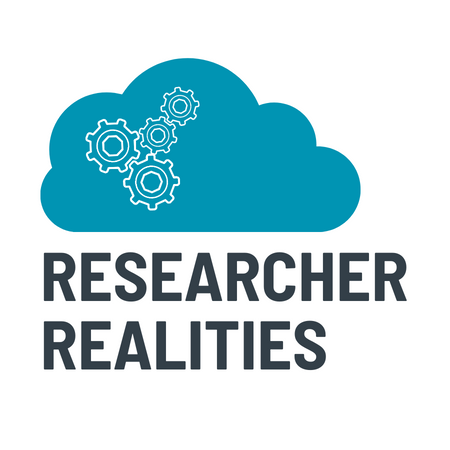In this blog post Dr Anna Pilz, Academic Developer & Trainer at the IAD, discusses the inaugural ‘Researcher Realities’ event, running on the 30th May.
I’ve attended and participated in well over 60 training events for researchers since I started my part-time PhD back in 2008. Notes of prompt questions, charts, good advice, quotations, top tips, worksheets, or reflection activities are compiled in folders and notebooks, on post-its and napkins (depending on what was to hand). The learnings I took from these have made their way into my research practice, my writing of CVs and Cover Letters, applying for funding, academic writing, career planning, mentoring, and into my own training design and delivery.
What stayed with me the most from these events, though, are those moments where researchers shared personal experiences about their own journeys. These personal insights into researcher realities had a strong impact: hearing, as a first-generation researcher, other first-generation academics speak openly about the ways in which they navigate the academic landscape when one doesn’t understand the ‘codes’ or ‘practices’ of a profession inside out stayed with me; hearing postdoctoral researchers speak about their decision not to relocate for another post to a new country opened up my career reflection on what I want versus what I thought I should do; hearing from those in high-profile leadership roles that they did not have a clear strategy for their career or a linear path gave hope at right moments to realise that not to have a strategy is okay too.
Personal insights into researcher realities – how we do what we do, what contexts and circumstances inform our decisions, what we do when things go wrong, how we navigate challenges – are invaluable. They bust myths; they nurture an open and inclusive research culture; they promote authenticity; they give reassurances and inspiration; they are courageous by addressing where the community can do better. These conversations all too often are confined to the coffee breaks at seminars or conference dinners, they happen serendipitously but not often enough.
To bring more of such talks on researcher realities into the open, I have dreamed up a 1-day inaugural event that would bring together researchers from across the University and with a breadth of experiences. You are warmly invited to attend #ResearcherRealities on 30th May 2023 and join the conversation (full programme & booking links). The day will feature four 90-minute sessions and give ample opportunity for live Q&A.
In our first themed session, Dr Eilidh Garrett, Dr Annie Irvine, Dr Cecile Menard and Dr Andrew Schurer will share how their Researcher Career Journeys unfolded. We will dive into the questions, motivations, and challenges that inform these journeys. You can take a look at the speakers’ experiences here and come along to the session to hear about their experiences and how they navigate precarity.
The day’s second themed session focuses on Journeys to Funding. As you can see from the speakers’ biographies here, we’ll have an opportunity to learn how researchers build their funding profile through fellowships and project grants while also gaining some insights into the challenges, including how to handle rejections. Across the panel, Dr Fergus Cullen, Dr Annemarie Docherty, Dr Sandy Hetherington and Prof Michelle Keown speak about funding experiences with the Wellcome Trust, the UKRI’s Future Leaders Fellowship scheme, the Arts and Humanities Research Council, and the European Research Council among others. The session will be expertly chaired by colleagues from the Edinburgh Research Office, Drs Elisabetta Spano and Boleslaw Czarnecki.
For our third themed session, Dr Emily Woollen will explore together with Dr Chiara Bonacchi, Prof Catherine Lyall, Dr Adrian Muwonge, and Dr David Overend the nitty-gritty question of how to get Interdisciplinary Collaborations off the ground. The speakers’ profiles give an indication of the disciplinary breadth that’s covered by challenge-led research projects relating to heritage, performance and political identities, as well as public health in the Global South.
I’ll round up the day by soliciting some Notes from the Principal Investigator on how they approach the role with all its complex and wide-ranging demands. Across the panel, the speakers Dr Katie Atkins, Dr Carsten Hansen, Dr Catherine Montgomery and Dr Wataru Uegaki have experience in leading projects of different sizes and shapes, in some instances act as PI and Co-PI on projects that run parallel, collaborate with national and international partners, and build and lead their own research teams.
The conversations and Q&A across the day will tease out how researchers decide, build, navigate, seek, grow, manage, and collaborate (and many more active verbs could be listed here) and learn about the ways in which a host of personal, institutional, and national contexts shape their researcher realities.
Join the conversation and let’s collectively embrace research as process.


